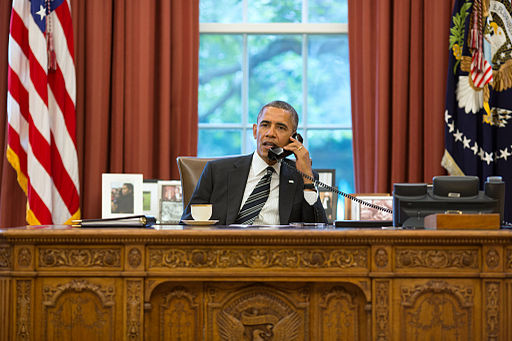On Sept. 11, 2001, the World Trade Center was destroyed by a series of coordinated suicide attacks. The terrorist act killed 2,977 people and fatally injured over 25,000. The nation mourned, and people around the world were in a state of shock.
Nine days later, George W. Bush, the sitting U.S. president stated in a joint session with Congress that the United States would “stop [terrorism], eliminate it, destroy it where it grows.” The War on Terror had begun, and over the course of the next month, a number of protective national security measures were swiftly created, including the Department of Homeland Security (DHS), the Transportation Security Agency (TSA) and the Office of the Director of National Intelligence (ODNI).
Assets funding terrorist groups and other security threats were frozen. America was drastically changing.
When the Obama administration took over counterterrorism efforts, the most prominent outcome was the death of Osama Bin Laden on May 2, 2011. The death of Bin Laden, the founder of al-Qaeda and mastermind behind the 9/11 attacks, was a pivotal moment in the War on Terror. After that, the United States had finally asserted its ability to remain the advocate of justice.
Bush, Obama and subsequent presidential administrations on both ends of the political spectrum remained firmly committed to and politically unified in tackling the entire terrorist network behind the 9/11 attacks. They sought to create and enforce foreign security policies that eventually normalized a culture of counterterrorism and the War on Terror.
However, at the same time, racism, racial profiling and discrimination in America towards Middle Easterners and South Asians soared in the aftermath of the event. As the United States took on the role of being the enforcer of counterterrorism for people all over the world, the main cultural consequence was the growing hostility towards Muslims and numerous ethnic minorities living in America.
After the death of Bin Laden, his second-in-command, Ayman al-Zawahiri, one of the other head planners of the 9/11 attacks, became the new leader of al-Qaeda and therefore America’s newest target. On July 31, 2022, he was targeted by United States intelligence in Kabul and was the only person killed. Al-Zawahiri’s death was meant to mark the end of jihadi terrorism as we know it, but the public’s response was not paralleled to the one following Bin Laden’s assassination.
Islamophobia and xenophobia, the wars in Afghanistan and Iraq and the intense increase in American security measures are all interconnected parts of a culture that enabled the American War on Terror. In the process of trying to eradicate the entirety of modern terrorism that forever altered the lives of millions of Americans, the international order has given the United States the power to pick and choose who it hurts in the supposed name of safety and justice. Now that the U.S.’s War on Terror targets more than just one organization, Al-Zawahiri’s death is now just an afterthought.
In our process of hunting down the thousands of people in charge of orchestrating the 9/11 terrorist attacks, millions of people, even if they were not terrorists or involved with targeted attacks in any way, have been harmed, tortured, targeted, and murdered. Hate crimes against Muslim Americans after 9/11 skyrocketed 1617% from 2000 to 2001, with the subsequent years seeing maintenance in the trend, and in the twenty years since, a culture of Islamaphobia has become normalized.
Additionally, the CIA detained thousands of Muslims suspected of participating in terrorist activity using “harsh interrogation techniques at various CIA black sites… ‘Waterboarding,’ ‘walling,’ ‘rectal feeding’ – a form of rape – and other forms of torture” were common practices used to torment the thousands of suspects detained at numerous sites, including Guantanamo Bay, where many detainees are currently still held.
According to Human Rights Watch, “As of January 6, 2022, the US was still detaining 39 of the nearly 800 men and boys it brought to Guantánamo from 2002 to 2008. Twenty-seven of those who remain have never been charged… A heavily redacted summary of the landmark 2014 US Senate Intelligence Committee report on the covert CIA program (the “Torture Report”) remains classified. The portions that have been released make clear that the torture was as useless in producing actionable intelligence as it was brutal.”
The detention system is inhumane, and an ongoing stain on America’s commitment to liberty. Currently, President Biden has committed to shutting down the prison and creating and expanding the trial process for a quicker expedition of detainees. But, just like Obama’s efforts, the process remains mostly stalled in the face of the bureaucratic legal system in place.
The War on Terror may have been well-intentioned, but the federal government has strayed away from its original mission and has ventured into protectionist, racialized measures that have caused more harm than good. The United States also has no legitimate plan for the near future of the war, but al-Zawahiri’s death signifies its necessary conclusion.
When could the war even end? When does the United States determine that we have accomplished our goal to eradicate terrorism and we have obtained justice against all those who have harmed us? When do we deal with the complex consequences of the system we’ve created, with endless detention and torture of innocent civilians and the two decades of American soldiers sent to war without an end goal? And how do we repair the systems and structures of states that we have fundamentally altered?
Additionally, in some instances, like with the CIA, are our actions any better than those who hurt us? Is torturing suspects what America stands for and how it advocates for justice? If the federal government, along with the general public, think we have taken this war too far, why don’t we stop?
The post-9/11 world has created more questions than answers and has led to the demise of millions. Although the death of al-Zawahiri is a significant win toward justice in the fight for peace, the United States must recognize that the negative consequences of its War on Terror have long outweighed the militant eradication of terrorism.
Many progressive members of Congress, like Rep. Barbara Lee, have been consistently pushing for the war to end. This has often involved advocating to end the Authorization for Use of Military Force of 2001 and 2002 acts, which have given three presidents — Bush, Obama, and Trump — the power to use American military force anywhere in the world. This has contributed to a never-ending, expanding and increasingly costly cycle of fighting terrorism in countries in which Congress never intended the United States to be involved in.
Rep. Ilhan Omar, a high-profile Muslim-American Congresswoman, said the following when discussing the effects of 9/11 on her community: “As Americans, as people who are living here, we were also attacked,” she said. “This is our community, this is our country, and there were Muslims who lost their lives in those towers, who were Muslim firefighters, who lost their lives… there is a desire by many to use our faith and our identity as a weapon against us and to ‘other’ us. That has been really harmful in so many ways.”
What began as a quest to tackle the perpetrators of the deadliest terrorist attack in history led to a war on the Muslim people, innocent and just as afraid as anyone else. The United States has created an Islamaphobic culture that has had devastating and deadly consequences for those affected. If the United States continues to waste its resources, people and money — almost 10 trillion dollars and 900,000 lives worth — on attempting to eradicate “terrorism,” a neverending phenomenon that has predated the first century AD, this War on Terror will be a war that will never end, and more people will continue to be hurt than helped.
Simply put, it’s time for the War on Terror to end.







